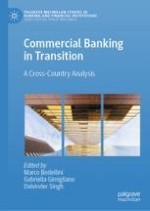2024 | OriginalPaper | Buchkapitel
14. Cross-Border Recognition of Foreign Resolution Actions: The Statutory Regime in the United Kingdom
verfasst von : Shalina Daved, Clare Merrifield, Michael Salib
Erschienen in: Commercial Banking in Transition
Aktivieren Sie unsere intelligente Suche, um passende Fachinhalte oder Patente zu finden.
Wählen Sie Textabschnitte aus um mit Künstlicher Intelligenz passenden Patente zu finden. powered by
Markieren Sie Textabschnitte, um KI-gestützt weitere passende Inhalte zu finden. powered by
